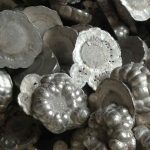At present, inert metal titanium implants are widely used in clinic. However, a 19-year retrospective study showed that about 47 percent of early implant failure was due to poor post-implant inflammation. Therefore, the application of inert metal titanium can not completely meet the clinical requirements. It is necessary to modify the surface of titanium material to regulate the body's immune inflammatory response, promote the development of inflammatory response in favor of tissue repair and regeneration, and ensure the success of implant implantation and long-term survival.

After implant implantation, the body's innate immune response can be induced, and macrophages, as the first line of defense of the innate immune system, play an important role in this process. Studies in the past two decades have suggested that macrophages not only play a role in phagocytosis and digestion, but also play an important role in tissue repair and remodeling by secreting chemokines and cytokines.
Macrophages are activated after migrating to the damaged site, showing two functional polarization states: m1-type and m2-type, which can promote inflammatory response, anti-inflammatory and tissue repair, respectively. Studies have shown that the surface physicochemical characteristics and morphology of implants can affect the differentiation and function of macrophages. Therefore, it is important to understand the changes in the biological behavior of macrophages after implant implantation and the effect of implant surface modification on the polarization of macrophages. This paper reviews the studies on the relationship between implant surface modification and macrophage polarization in order to provide new ideas for implant surface design and clinical application.
Guest contributors are welcome at the Alloy Wiki.It is a weekly wiki and guide on alloy information and processing technology, while also about the vast array of opportunities that are present in manufacturing. Our team of writers consists of a Machining Material Supplier / Machinist / Tool and Die Maker, a Biomedical Engineer / Product Development Engineer, a Job Development Coordinator / Adjunct Professor, and a President and CEO of a manufacturing facility.
Link to this article:Research progress on the effect of surface modification of titanium implants on macrophage polarization
Reprint Statement: If there are no special instructions, all articles on this site are original. Please indicate the source for reprinting:Alloy Wiki,thanks!^^


